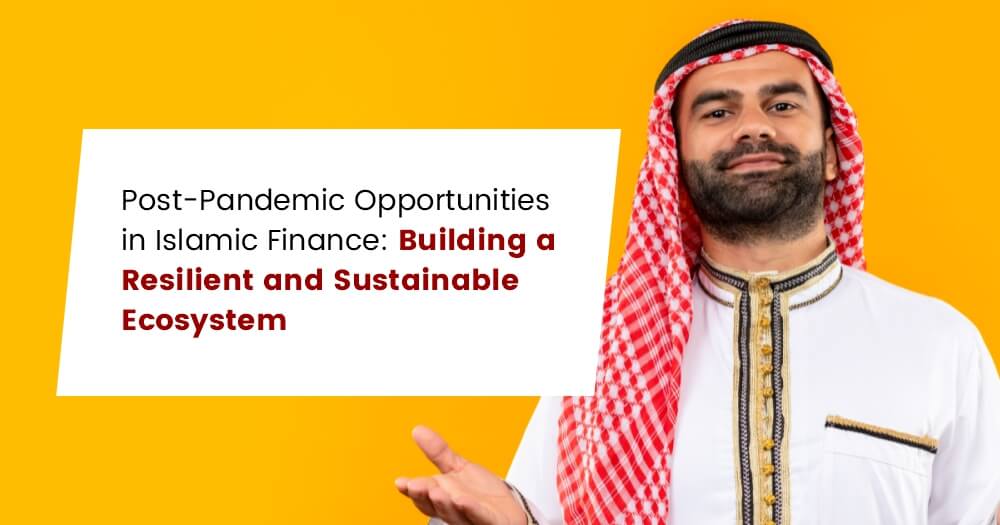Introduction
In today’s rapidly evolving global economy, Islamic finance is gaining prominence as a sustainable and ethical financial system. The principles of Islamic finance are rooted in the teachings of Shariah (Islamic law), which promotes fairness, transparency, and social responsibility. As the sector continues to grow, the role of Shariah advisory and auditing has become crucial in ensuring that Islamic financial institutions remain compliant with these principles.
Qitmeer Smart Management Consultancy, as a leading consultant in the Islamic finance ecosystem, plays an instrumental role in supporting businesses to align with Shariah laws. This blog post delves into the significance of Shariah advisory and auditing in strengthening the Islamic finance ecosystem, the role of firms like Qitmeer Smart Consultancy, and how these services can promote sustainability and innovation in the sector.
1. Understanding Shariah Advisory and Auditing in Islamic Finance
Islamic finance is distinguished by its adherence to Shariah law, which prohibits certain activities such as earning interest (riba), investing in businesses involved in haram (forbidden) activities, and engaging in excessive uncertainty (gharar). Shariah advisory ensures that Islamic financial products and services comply with these principles, while Shariah audits are conducted to assess whether the institutions continue to follow Shariah guidelines post-implementation.
Shariah Advisory: Shariah advisory involves consultation with Islamic scholars who are experts in Islamic jurisprudence and finance. They provide guidance on the structuring of financial products, services, and transactions to ensure Shariah compliance. This includes advisory on financing contracts such as Murabaha (cost-plus financing), Ijara (leasing), and Sukuk (Islamic bonds).
Shariah Auditing: Shariah auditing is a systematic review and evaluation of a financial institution’s operations, transactions, and products to ensure they remain compliant with Shariah law. It involves reviewing the institution’s processes, ensuring that there is no deviation from the initial Shariah-compliant structure, and verifying that profit and loss sharing mechanisms are properly implemented.
The need for Shariah advisory and audits has grown significantly, especially in the post-COVID-19 era, as financial institutions and investors seek to rebuild trust and enhance resilience in the Islamic finance sector.
2. The Importance of Shariah Governance in Islamic Finance
Shariah governance is a critical component of the Islamic finance ecosystem. It ensures that Islamic financial institutions operate within the ethical framework established by Shariah law. Shariah governance involves the establishment of an internal Shariah supervisory board (SSB) that oversees the institution’s operations and ensures compliance with Islamic law.
Effective Shariah governance helps in mitigating reputational risk, enhances investor confidence, and ensures that financial institutions uphold the ethical and social responsibility aspects of Islamic finance.
Key Components of Shariah Governance:
Shariah Supervisory Board (SSB): This board consists of scholars who have expertise in both Islamic jurisprudence and modern finance. Their role is to oversee the financial institution’s operations and ensure that they adhere to Shariah law.
Shariah Compliance Audit: This is an independent review conducted by Shariah auditors to assess whether the institution’s products, services, and operations are in line with Shariah law.
Internal Shariah Review: This involves the continuous monitoring and reviewing of the institution’s operations to ensure ongoing compliance with Shariah principles.
At Qitmeer Smart Management Consultancy, we offer comprehensive Shariah governance services, ensuring that institutions not only comply with Shariah law but also adopt best practices in governance, risk management, and compliance.
3. The Role of Islamic Finance in Post-Pandemic Recovery
The COVID-19 pandemic has profoundly impacted economies worldwide, and Islamic finance has not been immune to these challenges. However, the ethical and risk-sharing nature of Islamic finance presents unique opportunities for rebuilding resilient economies in the post-pandemic world.
Islamic finance is particularly well-suited for addressing the needs of economies during and after a crisis because of its emphasis on asset-backed financing, risk-sharing, and its prohibition of speculative activities. These features promote financial stability and discourage excessive risk-taking, which can be detrimental during periods of economic uncertainty.
Key Aspects of Islamic Finance in Post-Pandemic Recovery:
Socially Responsible Investing (SRI): Islamic finance emphasizes social justice and the well-being of society, making it a natural fit for SRI. In the post-pandemic world, there is a growing demand for investments that generate both financial returns and positive social impact.
Sukuk (Islamic Bonds): Sukuk provides a valuable tool for governments and corporations to raise capital while adhering to Shariah principles. During the pandemic, several countries issued Sukuk to finance emergency response efforts, and this trend is expected to continue as economies rebuild.
Microfinance and SME Financing: Islamic microfinance has proven to be a powerful tool for poverty alleviation and supporting small businesses. Post-pandemic, there is an increased focus on providing Shariah-compliant financing solutions for SMEs, particularly in sectors like healthcare, education, and renewable energy.
At Qitmeer Smart Consultancy, we are passionate about supporting the recovery of Islamic economies by providing expert guidance on sustainable Islamic finance solutions.
4. Governance Risk and Compliance (GRC) in Islamic Finance
Governance, Risk, and Compliance (GRC) frameworks are essential for any financial institution to operate effectively and ethically. In the context of Islamic finance, GRC frameworks are designed to ensure that institutions adhere to both regulatory requirements and Shariah principles.
Governance: Islamic financial institutions must implement strong governance structures to ensure that their operations align with both Shariah principles and regulatory standards. This includes establishing a transparent decision-making process and ensuring accountability at all levels of the organization.
Risk Management: Islamic financial institutions face unique risks, such as Shariah non-compliance risk, credit risk, and market risk. Effective risk management is essential for protecting the institution’s assets, maintaining investor confidence, and ensuring long-term sustainability.
Compliance: Compliance with both Shariah law and local regulations is critical for the success of Islamic financial institutions. Institutions must implement robust compliance programs to prevent violations and ensure that their products and services remain Shariah-compliant.
At Qitmeer Smart Consultancy, we specialize in providing GRC advisory services to Islamic financial institutions, helping them to navigate the complexities of the regulatory environment while adhering to Shariah principles.
5. Technological Innovation in Islamic Finance
Technological advancements are reshaping the financial landscape, and Islamic finance is no exception. From blockchain to artificial intelligence, technology is playing an increasingly important role in the development of innovative financial products and services in the Islamic finance sector.
Blockchain in Islamic Finance: Blockchain technology offers the potential to enhance transparency, security, and efficiency in Islamic finance. For example, blockchain can be used to create smart contracts for Shariah-compliant transactions, ensuring that all terms and conditions are met before a transaction is executed.
Artificial Intelligence (AI): AI can be used to enhance decision-making processes in Islamic finance, from credit risk assessment to customer service. AI-powered solutions can help institutions analyze vast amounts of data, identify patterns, and make more informed decisions.
Financial Technology (FinTech) Integration: FinTech is transforming the way financial services are delivered, and Islamic finance is increasingly embracing this trend. FinTech solutions can help Islamic financial institutions streamline their operations, improve customer service, and expand access to Shariah-compliant products and services.
At Qitmeer Smart Consultancy, we are committed to stimulating technological innovation in Islamic finance by integrating cutting-edge technologies into our advisory services.
Conclusion
The Islamic finance ecosystem is evolving, driven by the increasing demand for Shariah-compliant products, technological innovation, and the need for sustainable finance solutions. As a leading consultant in the Islamic finance ecosystem, Qitmeer Smart Management Consultancy is at the forefront of this transformation, providing expert advisory services, conducting thorough Shariah audits, and promoting the adoption of Governance, Risk, and Compliance frameworks.
In the post-pandemic world, Islamic finance offers unique opportunities for rebuilding resilient economies and promoting social justice. At Qitmeer, we are passionate about enriching the knowledge of Islamic finance, driving innovation, and supporting businesses in their journey toward sustainability and compliance with Shariah principles.
By focusing on research, databases, periodic events, and cutting-edge solutions, we aim to contribute to the stability of the Islamic economy and support Dubai’s vision as the capital of Islamic finance. Let Qitmeer Smart Consultancy be your trusted partner in navigating the complexities of Islamic finance and unlocking new opportunities in the global market.



